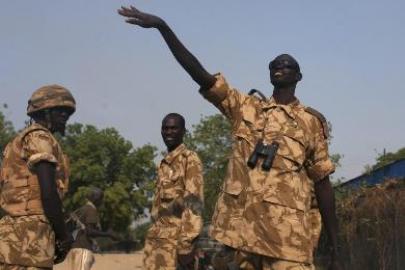S. Sudan’s military court boss resigns, cites ethnic “bias”
February 18, 2017 (JUBA) – The South Sudanese army confirmed on Saturday the resignation of yet another senior military officer, days after its head of logistics quit over allegations the army was being turned into an ethnic institution.

Koang said Khalid quit the army last year and has been absent and outside the country.
“That man [Khalid] resigned last year and he decided to not publicize. Why now. It is not important and has no bearing on the SPLA,” Koang told reporters in Juba on Saturday.
Khalid becomes the third top official in a week to resign while criticizing the government of President Salva Kiir over its alleged failure to implement the August 2015 peace deal.
The former head of the miltary court described the justice system as “arbitrary”, ” corrupt” and “discriminatory” against those who are not part of the president’s ethnic group.
He also accused chief of general staff, Paul Malong Awan, of being engaged in “relentless endeavors” to protect his Dinka tribesmen and advocated for his resignation.
“You have indeed brought shame and an unfamiliar ethos to South Sudan that will only lead the country to more calamities,” wrote Khalid.
This comes days after Thomas Cirillo Swaka, the deputy chief of general staff for logistics resigned from the army, saying the military was dominated by the ethnic Dinka.
The minister of labour and public service, Gabriel Duop Lam, also resigned his position in the unity government and joined the armed opposition faction led by Riek Machar.
These resignations, observers say, are signs that Kiir is struggling to retain his coalition of support. South Sudan is experiencing hyperinflation, worsened by renewed conflict.
Tens of thousands of people have been killed and millions displaced in the country’s worst ever outbreak of violence since it broke away from neighboring Sudan in July 2011.
(ST)
